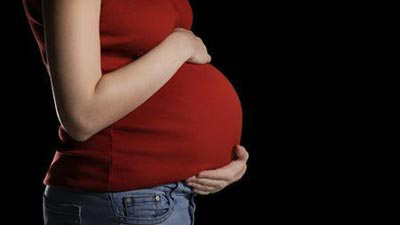While teenage pregnancy has been slowly dropping over the past few years, teenagers who do become pregnant prior to completing high school still have an increased risk of abusing drugs, alcohol, prescription medications and other substances. It’s important to address this concern to prevent grave health risks for society’s most vulnerable demographic.
What is the cause?
Environment plays a strong role in causing teens to turn to substance abuse. Pregnant teens face criticisms from peers, authority figures, family and others. This treatment can propel pregnant teens toward feelings of worthlessness, guilt and shame, which have an increased risk of leading to substance abuse. If a teen already has a previous history of substance abuse, the added stress of pregnancy can make her more likely to relapse.
Effects of substance abuse on teen pregnancy

Substance abuse poses extreme dangers to both pregnant mothers and unborn children. According to Teen Pregnancy Statistics, drug use during pregnancy may lead to many different birth defects, including:
- Congenital defects in the heart and cardiovascular system
- Misshapen feet and limbs
- Improper formation of the lips and cheeks
- Problems with the placenta
- Low birth weight
- Sudden infant death syndrome (SIDS)
- Miscarriage
- Heavy bleeding during pregnancy
- Gestational diabetes
- Worsened symptoms of morning sickness
- Cerebral palsy
- Fetal alcohol syndrome (FAS)
- Developmental disabilities
- Long-term health problems
- Mental illnesses
In addition to problems for the child, substance abuse will lead to serious physical, mental and social problems for the mother. For example, substance abuse may lead to increased likelihood of criminal behavior and incarceration.
Treatment for substance abuse in pregnant teens
Treatment may include medication and psychotherapy. Depending on the severity of the substance abuse disorder, teen mothers may want to stay in inpatient treatment centers. Inpatient detox centers provide a supervised environment to ensure baby and mother are given appropriate medical care to reduce the chances of miscarriage and birth defects. Even after detox, pregnant teens can benefit from inpatient rehabilitation facilities providing around-the-clock care medical care.
Depression, anxiety, and other mental health disorders are commonly found alongside substance abuse disorders and will require additional treatment. If a judge believes a teen poses a threat to her child due to mental health disorder or substance abuse history, she may be ordered to spend the duration of the pregnancy in a secure inpatient facility.
Pregnancy during the teen years can be a traumatic experience, and substance abuse only makes it worse. As society becomes more educated about how to support pregnant teens, it’s to be hoped that teen mothers will be given the tools they need to resist substance abuse, both for their own sake and the sake of their unborn children.
See more at:SovHealth Treatment Centers
